Owning hope: A mother’s emotional journey in Syria
We tend to think of conflict in terms of facts. Like the number of lives lost in the Syria Crisis. Or how more than eight years of devastation have left three quarters of Syria's population living in extreme poverty, while more than six million people remain displaced inside the country.
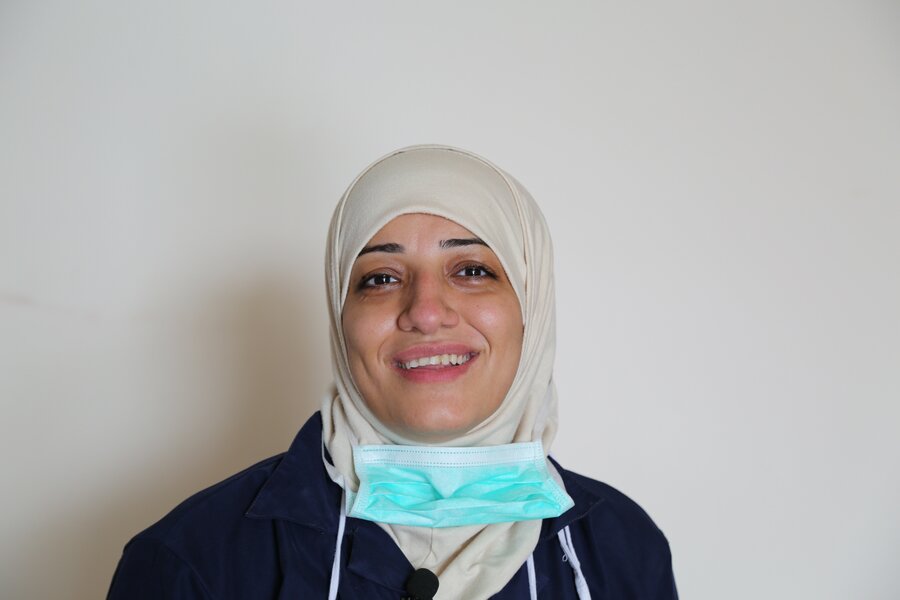
But every so often we meet a person who reminds us that conflict is also about the emotional journey that defines people's lives. Dima Hussein, a widowed mother in her twenties, journeyed through a tapestry of emotions over the past years — a journey of fear and loss, heartbreak and denial, determination and finally self-confidence and reliance.
I met Dima at a local factory where she helps to prepare fresh meals for schoolchildren as part of a project run by the World Food Programme in Syria. The mother of three young children has been working for two years to support her family and put her children through school.
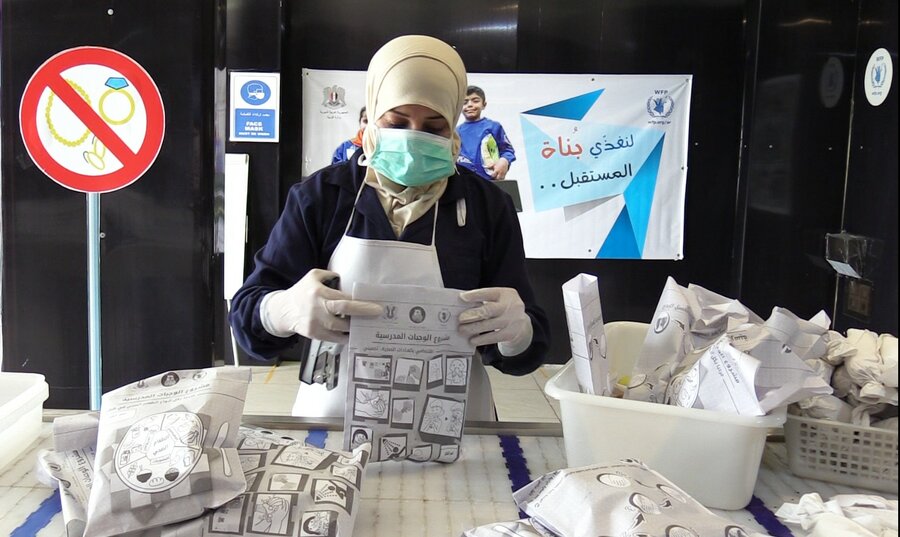
Standing at one end of the assembly line, Dima nimbly wrapped sandwiches and packaged meals by hand. Her quick, mechanical work conveyed a sense of purpose that drew me to talk to her. This was how I came to learn that she had not always been as confident, as determined as she is today.
When the Syria crisis began, Dima was living in Zabdiya, a neighbourhood in the southeast part of Aleppo city. In the early stages of conflict, she and her family were trapped in the building where they lived, afraid to go out onto the street where fighting raged.
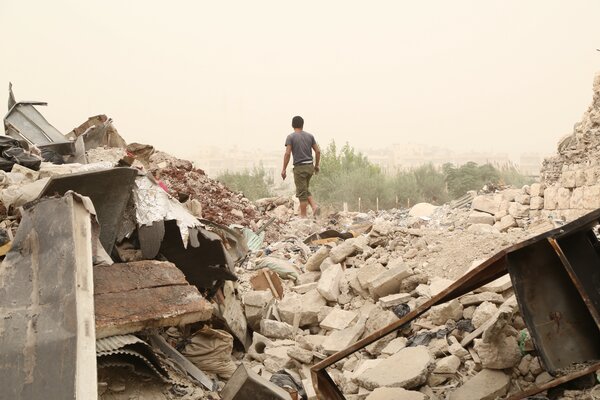
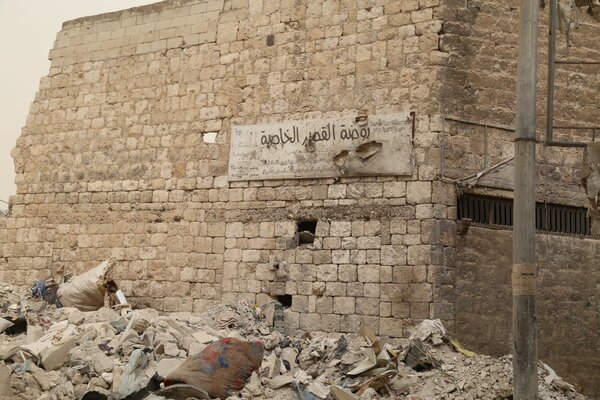
"We were barely living," said Dima, whose husband was so afraid for her life and the lives of their three children that he implored her to stay indoors no matter what happened. "One evening he told me if anything should happen to him, even if I were to see him dead on the street, we must not come out." The next day, he ventured out to buy food from the market but was killed on his way back.
Dima felt the loss of her husband deeply. "It was like my heart was scorched. He was gentle and caring," said Dima, her eyes welling up with tears.
While the conflict has affected the lives of all Syrians, women have shouldered a heavier burden to survive. Many have lost their spouses, becoming the breadwinners of large families. With the unemployment rate at 50 percent, it is hard for women to find jobs — and even more so for those who have never worked before and relied on their husbands.
"At first I felt self-pity every time I would hear a neighbour call my children orphans."
Dima suffered another loss when she had to abandon her home in Zabdiya and search for another in the safer areas of Aleppo city. She was forced to rely on charity from her neighbours to support her children. Day after day, she grew restless and uncomfortable as she became the object of people's pity.
"At first I felt self-pity every time I would hear a neighbour call my children orphans," she said. In Syria, children who lose their father are considered orphans because men are traditionally known to be the main breadwinners.
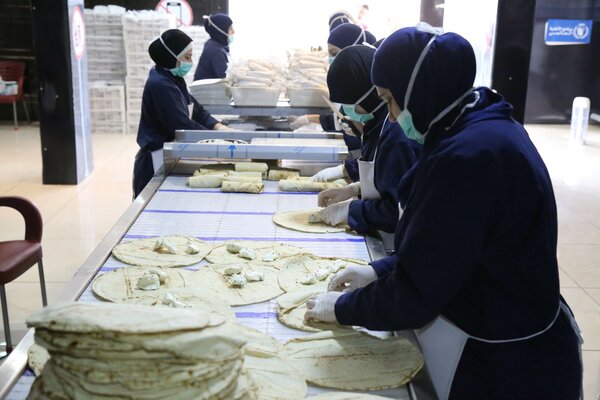
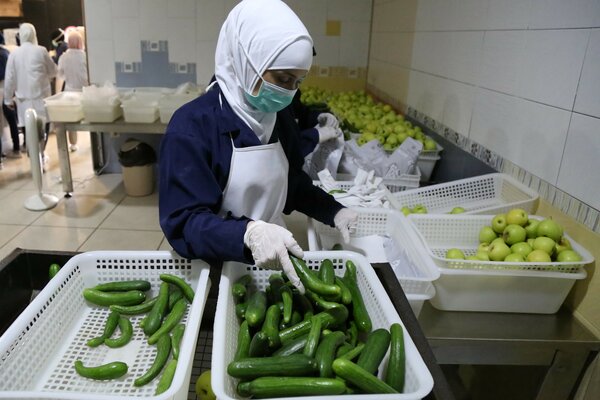
"It left a bitter taste in my mouth, knowing the food I was eating was a result of other people's pity. I was determined to pull myself and my children out of our need for charity."
Dima's drive guided her decision to search for work, which she found at the sandwich factory where 52 other women — also widowed — earn a steady income.
With her first salary of 77,000 Syrian Pounds (approximately US$ 180), Dima bought a soccer ball for her children to play with and stationery items for school. "I became confident in my ability to look after myself and the children. I no longer relied on charity and that renewed my sense of dignity."
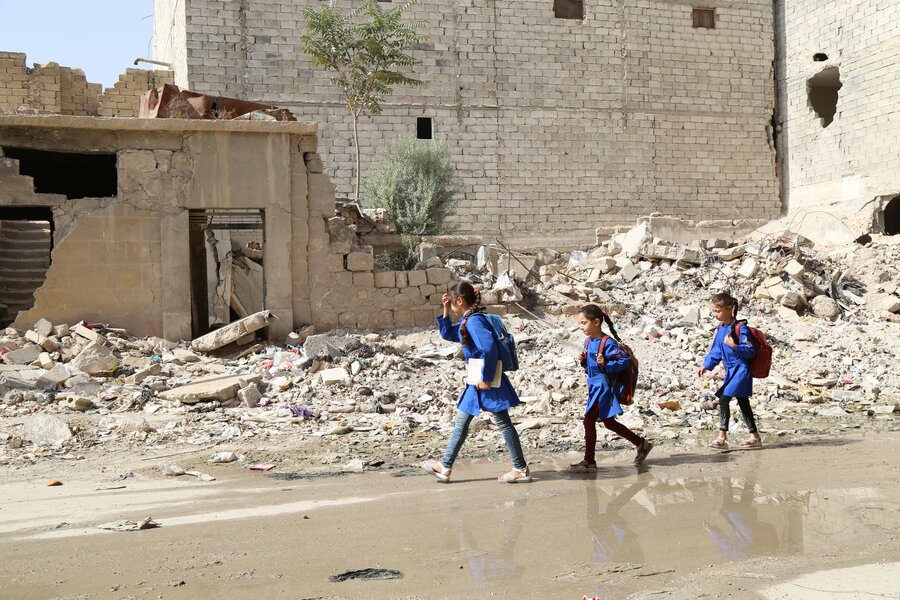
These days, Dima's self-confidence is fuelled by her ability to afford her children's needs. She uses her hard-earned income to buy them food, school supplies and toys.
"My first pay was significant. With it, I bought them a soccer ball," she chuckled. "Having my own money made me proud of being a mother and head of my household."
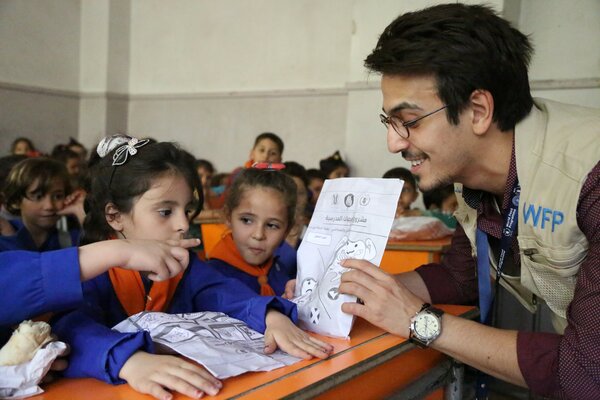
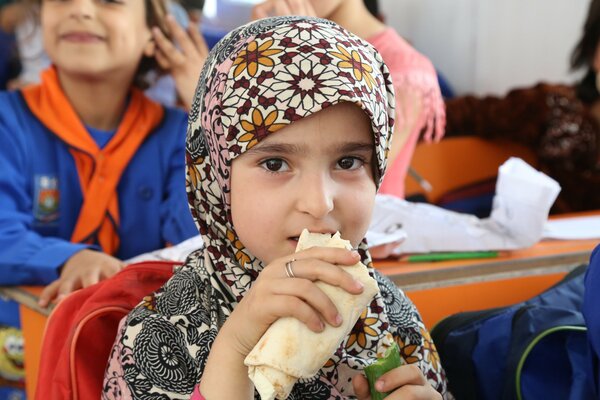
While the World Food Programme (WFP) and its partners continue to provide emergency relief to more than three million of the most vulnerable in Syria, the organization is also developing livelihoods projects to help Syrians rebuild their lives, benefiting many Syrian women like Dima. These programmes have supported women who were suddenly thrust into a space they did not traditionally hold — the economy, the job market, being head of the household.
"Our meals taste sweeter now that I can feed my children with my salary, instead of people's charity."
With the Syrian Pound currently worth a mere tenth of its value in 2011, families now spend more than 80 percent of their income on food. But while they continue to rely on foreign assistance to meet their basic needs — food, water, shelter — they need more than immediate relief efforts if they are to become productive members in their communities again.
"Our meals taste sweeter now that I can feed my children with my salary instead of people's charity," said Dima.
